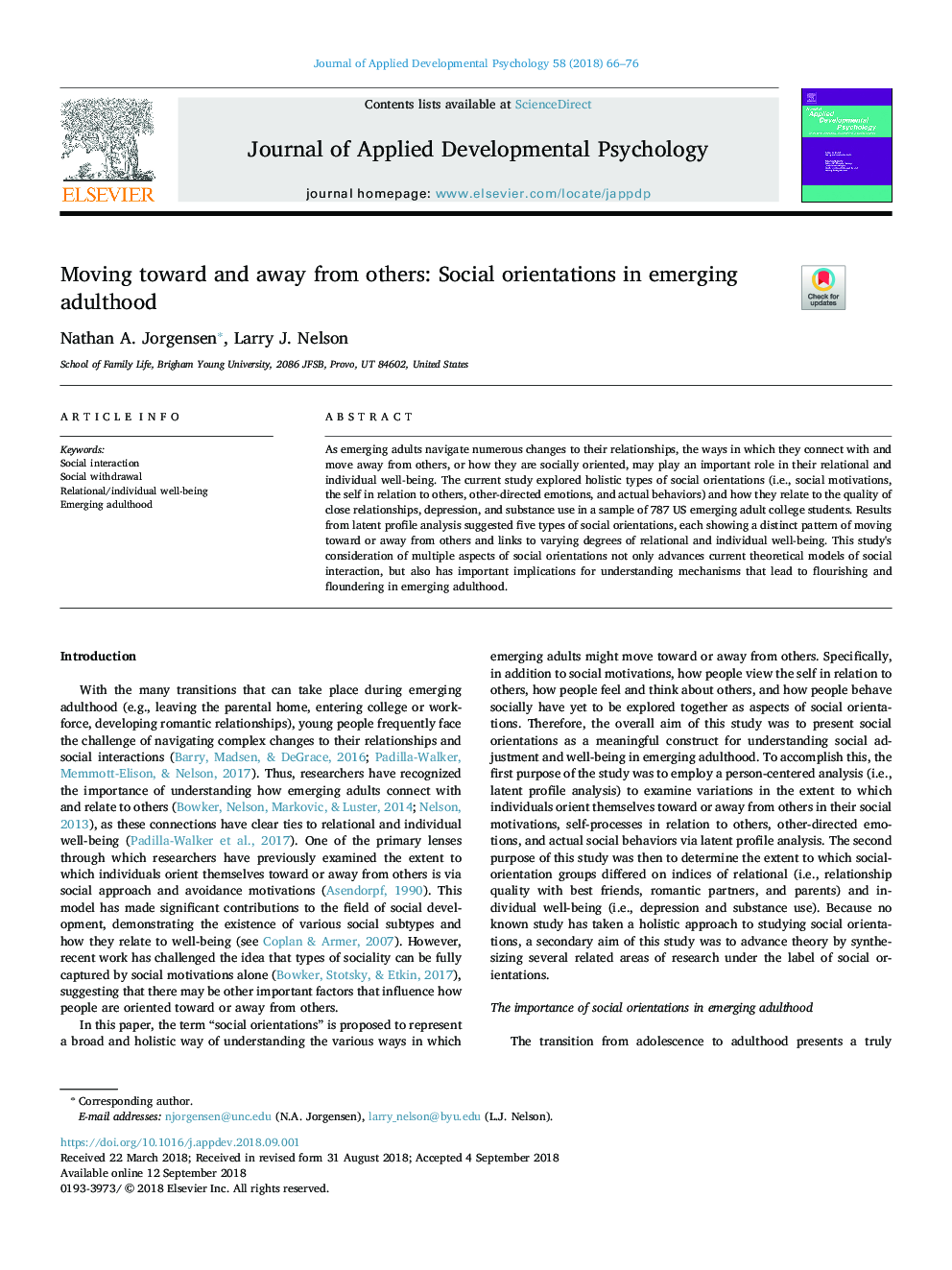| Article ID | Journal | Published Year | Pages | File Type |
|---|---|---|---|---|
| 9951993 | Journal of Applied Developmental Psychology | 2018 | 11 Pages |
Abstract
As emerging adults navigate numerous changes to their relationships, the ways in which they connect with and move away from others, or how they are socially oriented, may play an important role in their relational and individual well-being. The current study explored holistic types of social orientations (i.e., social motivations, the self in relation to others, other-directed emotions, and actual behaviors) and how they relate to the quality of close relationships, depression, and substance use in a sample of 787 US emerging adult college students. Results from latent profile analysis suggested five types of social orientations, each showing a distinct pattern of moving toward or away from others and links to varying degrees of relational and individual well-being. This study's consideration of multiple aspects of social orientations not only advances current theoretical models of social interaction, but also has important implications for understanding mechanisms that lead to flourishing and floundering in emerging adulthood.
Related Topics
Social Sciences and Humanities
Psychology
Applied Psychology
Authors
Nathan A. Jorgensen, Larry J. Nelson,
